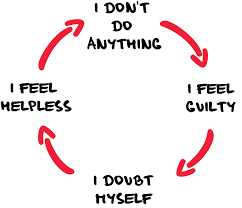The Consequences of Procrastination; The Time Thief.
What is procrastination?
Procrastination is the act of unnecessarily and voluntarily delaying or postponing something despite knowing that there could be negative consequences for doing so. It is a common human experience involving delays in everyday chores or even putting off tasks such as attending an appointment, submitting a job report or academic assignment, or broaching a stressful issue with a partner.
Edward Young once said, “Procrastination is the thief of time.”
It is often perceived as a negative trait due to its hindering effect on one’s productivity, associated with depression, low self-esteem, guilt, and feelings of inadequacy. However, it can also be considered a wise response to certain demands that could present risky or negative outcomes or require waiting for new information.
Procrastination is a bad and dangerous habit that can delay destiny and incur pain and regret. People procrastinate due to a few reasons, like laziness, careless attitude, and peer pressure. Postponing to do something will not only affect you, but it will also affect others around you. Procrastination shatters what we have built with our struggles, causing us to stress and worry.

We know that health-wise, stress and worrying will only increase one’s blood pressure, and we don’t want that for ourselves, so it’s better to err to the side of caution than to regret it for the rest of ourselves.
The Bible also condemns procrastinating. Let’s look at some of those Bible passages and read and understand them better.
- Proverbs 12:24: The hand of the diligent shall bear rule, but the slothful shall be put under tribute. It simply means that those who work hard shall reap the fruit, but those who are lazy will suffer. This verse highlights the contrast between diligence and laziness. Diligent hands lead to success and control, while laziness results in forced labour or hardship.
- Proverbs 14:23: “In all labour there is profit, but mere talk leads to only poverty.” It simply explains that before a person can accomplish anything in this life, they need to put in effort. There is a popular saying that ‘talk is cheap’. So to get where we want to be in life, we need to work effortlessly and stop postponing… This verse emphasises the importance of hard work and its rewards. Empty talk leads to poverty, while productive effort brings financial gain.
.
- Proverbs 20:4: “The sluggard does not plough in the autumn; he will seek at harvest and have nothing.” We know there is no pay for laziness, and anyone who procrastinates is lazy, and there will be nothing to show for it. This verse warns against the consequences of laziness. Those who neglect their duties at present will suffer in the future.
- Proverbs 24:33-34: “A little sleep, a slumber, a little folding of the hands to rest, and poverty will come on you like a thief and scarcity like an armed man.” This passage emphasises the dangers of procrastination and laziness. Those who delay or avoid their responsibilities eventually find themselves in poverty and scarcity.
- Hebrews 6:12: So that you may not be sluggish but be the imitator of those who, through faith and patience, inherit the promises. This verse encourages us to persevere and avoid laziness. We should imitate those who have demonstrated faith and patience and have received God’s promises.
In essence, these verses collectively emphasise the importance of diligence, hard work, and making the most of our opportunities. They warn against the dangers of procrastination and laziness, and they encourage us to pursue our goals with determination and purpose.
READ: Seeds of Destiny Devotional, 4 September 2024.
Content Credit| Igbakuma Rita Doom
Picture Credit | https://www.focusbear.io/blog-post/how-to-stop-procrastinating-4-steps-17-strategies
https://procrastination.com/what-is-procrastination
Sumber : Jalalive




